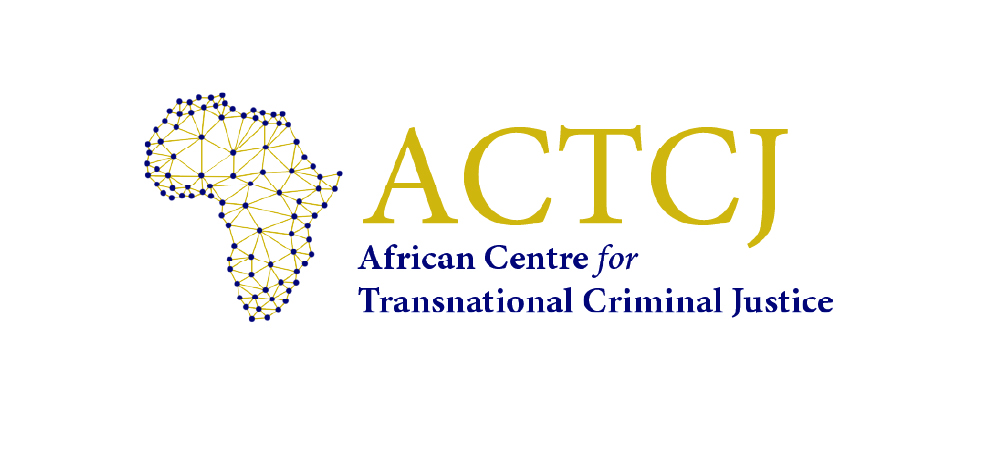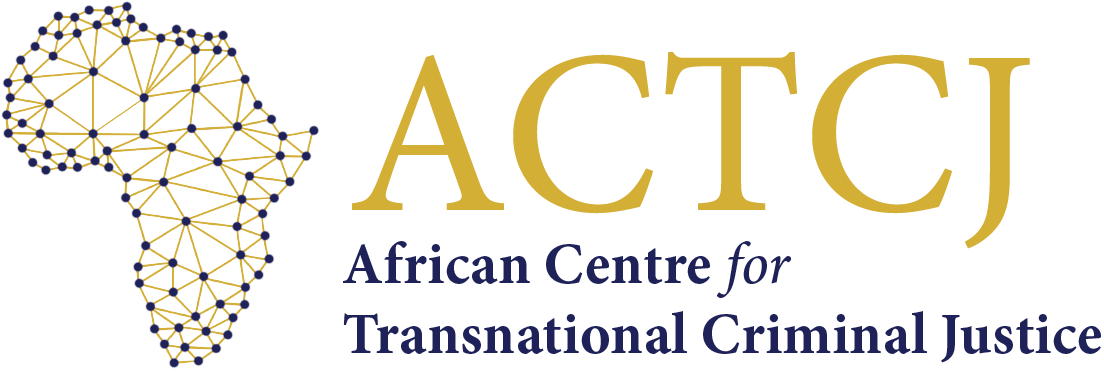
The African Centre for Transnational Criminal Justice (formerly the South African-German Centre for Transnational Criminal Justice) was originally established in 2008 and existed for over a decade before it was re-established under its current name in 2020. The mission of the Centre is to undertake cutting-edge research in its research niche, train subject specialists and experts equipped with the necessary skills to work in the field of international criminal law, transitional justice, transnational organised crimes and related fields both at the local, regional and international levels, whether in academia or industry. Through its research and academic events, the Centre provides a platform for critical and engaged scholarship that responds to the myriad challenges confronting the African continent in a rapidly changing and interconnected world.
About ACTCJ
Mission
To advance the knowledge and practice of transnational criminal justice in Africa and beyond through cutting-edge research, postgraduate training and advocacy. In pursuit of this mission, the Centre will provide a platform for critical and engaged scholarship that responds to the challenges confronting the African continent in a rapidly changing and interconnected world.
Vision
To become the intellectual hub of engaged scholarship and critical inquiry that leads cutting edge research and provides high quality postgraduate programmes.
Our focus
The African Centre for Transnational Criminal Justice (ACTCJ) carries out research and postgraduate training in international criminal law, transitional justice, transnational organised crimes, international humanitarian law, international peace and security, terrorism and other transnational threats and challenges facing African countries and societies in transition.
Mass atrocities continue to be committed in Africa and elsewhere despite the global efforts to end impunity for international crimes. The current mechanisms and institutions of international criminal justice continue to face numerous challenges and a crisis of legitimacy. At the same time, globalisation and advance in technology have opened new opportunities for transnational criminal activities to target States and organisations with increasing vulnerabilities. As criminals increasingly leverage technology in their activities, the cross-border impacts reach far beyond the territory of one single state, the traditional legal tools for countering these activities such as extradition, mutual legal assistance, cooperation frameworks are coming under pressure and in many cases of limited utility.
This is of particular importance for the African continent which has witnessed an intensification of the conflict-crime-terrorism nexus in the last decade years. The African Centre for Transnational Criminal Justice is uniquely positioned to contribute to tackling these and other challenges in Africa. As the intellectual hub that leads research in this field through partnership and collaboration with researchers, inter-governmental organisations, think tanks, civil society organisations, international organisations and other regional and international academic institutions and partners, the ACTCJ offers the platform for sustained active engagement in contemporary intellectual enquiry that not only reflects the African condition but also speaks to the African experience.
Our history
The African Centre for Transnational Criminal Justice (ACTCJ) (formerly known as the South African-German Centre for Transnational Criminal Justice) was originally established in 2008 and existed for over a decade before it was re-established in 2020 under its current name. In the early days of the transition to democracy in South Africa, the University of the Western Cape and Humboldt-Universität zu Berlin, began a cooperation arrangement that culminated in the establishment of the South African-German Centre for Development Research and Criminal Justice in 2008. This later split into two centres— the South African-German Centre for Development Research and the South African-German Centre for Transnational Criminal Justice.
The Centre was conceived as a joint project between the Law Faculties of the University of the Western Cape and of the Humboldt Universität zu Berlin to deliver a unique programme entitled ‘Transnational Criminal Justice and Crime Prevention – An International and African Perspective’.
The programme consisted of the LLM and PhD programmes which started in 2009 and 2010 respectively. The programme was ‘international’ and ‘unique’ and attracted students from South Africa, Africa and the rest of the world. Most of the students received DAAD scholarships while a few others depended on other sources of funding or were self-sponsored. Selected LLM graduates were admitted into the DAAD-funded PhD cohort supervised by academics at UWC and Humboldt University. Master’s students in the programme attended a summer school at Humboldt University during which they also attended lectures and research seminars presented by leading international experts in the field of international criminal law and transitional justice. The students utilised resources and research facilities offered by the partner institution and were able to consult with experts in respect of their theses.
PhD students were funded to undertake research visits to Humboldt University in Berlin for several months during which they participated in research seminars, interacted with researchers in their field, visited research facilities at other German universities and institutions, and participated in the research activities organised by similar Centres of Excellence. In this way, UWC students gained valuable exposure and developed broad perspectives in relation to their courses and research topics.
The Centre focused on learning, teaching, research and postgraduate supervision and for over a decade (2008 – 2018), the Centre maintained its status as one of the Centres of African Excellence (CoAE) established and funded by the Foreign Office of the German Federal Government across Africa. From an initial batch of 19 LLM students in 2009, more than 127 LLM students and 13 PhD students graduated from the Centre as of 2018 and the Centre was regarded as a ‘unique establishment in Africa, with the potential of becoming the premier teaching and research site in the criminal justice field in the whole of Africa’. Works published by staff and students at the Centre have become influential reference works in the field.
